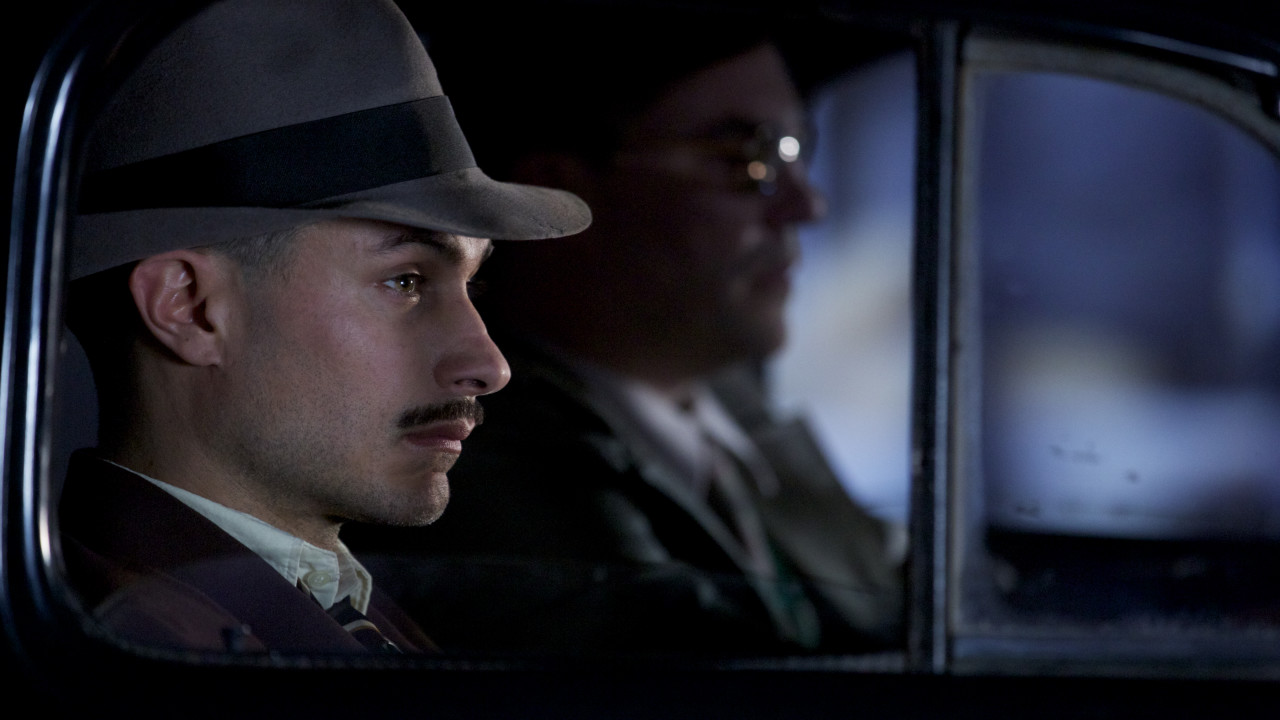Pablo Larraín (The Club, No, Tony Manero) weaves an engrossing metafictional fable around the 1948 manhunt for celebrated poet and politician Pablo Neruda, who goes underground when Chile outlaws communism and is pursued by an ambitious police inspector (Gael García Bernal) hoping to make a name for himself by capturing the famous fugitive.

The eventful and unorthodox life of the Nobel Prize–winning poet, politician, committed communist, unapologetic hedonist, and Chilean cultural icon Pablo Neruda provides plentiful territory for cinematic exploration. The poet's early-1950s exile in Procida previously inspired Michael Radford's Il Postino, a fictionalized story about Neruda's relationship with a local postman that left few cinemagoers dry-eyed. Now, Pablo Larraín, Chile's most inventive and provocative contemporary filmmaker, takes a wholly unique approach to his famous countryman's life and work with Neruda, which is set during the poet's sojourn underground in the late 1940s.
Following the Chilean president's outlawing of communism in 1948, Neruda (Luis Gnecco) and his artist wife Delia (Mercedes Morán) are forced into hiding. While the mundanity of life on the run holds little charm for the cultured pair, this also proves to be a time of prolific output for the poet, as Neruda's ideologically charged poems rouse the people and give voice to the voiceless.
Providing counterpoint to Neruda, Larraín introduces a second protagonist: an invented character named Óscar Peluchonneau (Gael García Bernal, who previously starred in Larraín's acclaimed No), an ambitious police inspector hoping to make a name for himself by capturing the celebrity fugitive. Larraín uses the cat-and-mouse game between these two adversaries to reflect on notions of identity and character, as Peluchonneau strives to escape from his fictional origins by tracking down the "real" Neruda.
Elegant and beguiling, Neruda offers a (fittingly) Nerudian vision of its eponymous protagonist. It's a metafictional fable that blends historical recreation with literary and cinematic fabrication. Pushing the limits of filmic biography, Larraín offers a stimulating and sometimes startling rumination on the split that can exist between the person and the persona, the man and the artist.
DIANA SANCHEZ
Screenings
Scotiabank 14
Bell Lightbox 1
Winter Garden Theatre
Scotiabank 3